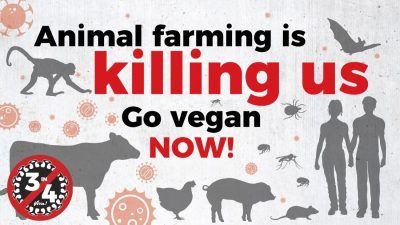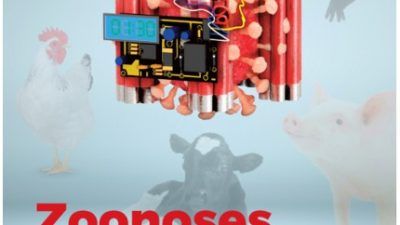Mpox (monkeypox)

Mpox (previously known as monkeypox) is a zoonotic infectious disease – originally transmitted to humans from animals. It can be passed on through contact with someone who has the infection.
The symptoms are similar to those seen in people with smallpox, although less severe.
If you get infected with mpox, it usually takes between five and 21 days for the first symptoms to appear, these include:
- skin rash or pus-filled lesions
- fever (a high temperature)
- a headache
- muscle aches
- back pain
- low energy
- swollen glands
- shivering (chills)
- exhaustion
A rash usually appears one to five days after the first symptoms. The rash starts as raised spots, which turn into small blisters filled with fluid. The number of these can vary from a few to several thousand. These blisters eventually form scabs which later fall off. The symptoms usually clear up in two to four weeks.
The World Health Organisation (WHO) says that the case fatality ratio of mpox has historically ranged from 0 to 11 per cent in the general population and has been higher among young children. In recent times, the case fatality ratio has been around three to six per cent.
2024 UPDATE
On 15 August, 2024, the World Health Organisation (WHO) declared the mpox outbreak a public health emergency of international concern (PHEIC), the category used in the past for Ebola outbreaks, Covid-19 and a 2022 mpox surge in Europe.
This declaration follows an upsurge of mpox in the Democratic Republic of the Congo (DRC) and a growing number of other countries in Africa which the WHO’s International Health Regulations Emergency Committee consider to be a concern with potential to spread further across countries in Africa and possibly outside the continent.
The emergence last year and rapid spread of a new virus strain in DRC (referred to as clade 1b), is one of the main reasons for the declaration. As of 4 August, there had been 38,465 cases of mpox and 1,456 deaths in Africa since January 2022, including more than 14,000 cases and 524 deaths in the DRC alone this year. These included clades I and II of the virus, as well as the new clade Ib, which appears to be driving the outbreak in the DRC and neighbouring countries, and to which children appear particularly vulnerable.
Currently, there are no cases of Clade 1 mpox confirmed in the UK.
Case numbers had fallen dramatically and as of July 2022, the outbreak of mpox that year was no longer classified as a high consequence infectious disease (HCID) as it did not meet the criteria for an HCID, which is defined as having a high mortality rate and a lack of available interventions. There were no reported deaths from mpox in the UK during the last outbreak and there is a vaccine available for higher-risk contacts, healthcare workers who are caring for and who are due to start caring for a patient with confirmed mpox, and a new vaccination programme for those who are most at risk.
Mpox continues to pose a significant threat to the health of individuals and high-risk populations.
The original name ‘monkeypox’ came from the fact that the disease was first seen in captive monkeys that had been shipped from Singapore to a research laboratory in Denmark in 1958. However, its natural hosts are squirrels and other rodents and it spreads in areas where they are hunted by people for meat. Infections have occurred in squirrels, rats, mice, monkeys, prairie dogs and humans. Infection among domesticated dogs has never been reported, but in August 2022, the first suspected case of human-to-dog transmission of mpox was reported in Paris.
In the wild, mpox virus infections occur with a high prevalence in several species of squirrels but rarely in forest-dwelling primates. Human infection occurs most frequently in small villages where people hunt and eat squirrels and other small mammals. People usually catch the disease from hunting and handling dead animals (bushmeat), animal bites or scratches, body fluids, contaminated objects or close contact with an infected person, as is the case for some travellers.
This virus is endemic to western and central Africa, outbreaks in other countries tend to be related to the exotic pet trade and international travel.
It’s another classic case of humans’ interference with wild animals shaking a virus lose from its natural host! We are decimating wild landscapes, killing wild animals or caging them and sending them to market, invading and disrupting ecosystems – covid was a warning shot that we seem to have learnt nothing from.
The Government’s focus on preparing better for the next pandemic, by developing vaccines or stockpiling PPE, is misguided and foolhardy. We should be focussing on preventing the next pandemic by banning the sale of wild animals globally and stopping large-scale factory farming. Going vegan would be the simplest, and most effective solution.
The first human case of mpox was recorded in 1970 in the Democratic Republic of the Congo in a nine-year-old boy living in a region where smallpox was eliminated in 1968. Since then, most cases have been reported in central and west Africa, often in areas close to tropical rainforests but increasingly in urban areas too.
Human cases have been reported in 11 African countries: Benin, Cameroon, the Central African Republic, the Democratic Republic of the Congo, Gabon, Cote d’Ivoire, Liberia, Nigeria, the Republic of the Congo, Sierra Leone and South Sudan.
Cases continue to be reported but the true burden of mpox is unknown. It’s estimated that more than 1,000 cases of mpox occur in people just in the Democratic Republic of the Congo alone each year. However, because most cases occur in rural Africa, underreporting may lead to an underestimation of the potential threat of this zoonotic disease.
A few thousand cases a year are thought to occur in Africa, typically in the western and central parts of the continent. Cases outside Africa have previously been limited to a handful that were associated with travel to Africa or with the importation of infected animals.
In 2003, the first mpox outbreak outside Africa was linked to the import prairie dogs, destined to be sold as household pets in the Midwestern US. They had been housed alongside infected Gambian giant rats imported from Ghana – this resulted in 53 human cases of mpox in the US.
Travel-related mpox cases have been reported in the US, Singapore and Israel as well as the UK. Between 2018 and 2021, a number of cases of mpox were reported in the UK in people who had travelled from Nigeria. A healthcare worker, caring for one of these cases, was infected from contact with contaminated bed linen. Healthcare-associated transmission of mpox has been seen on multiple occasions in areas where the disease is endemic.
In May 2022, outbreaks were reported across 19 non-endemic countries, mainly in Europe (the UK, Spain, Portugal, Germany, Belgium, France, the Netherlands, Italy and Sweden) but also in the US, Canada, Australia and the United Arab Emirates (UAE). In the UK, the first case in this outbreak was detected on 7 May 2022. Numbers have continued to rise steadily in the UK reaching over 3,500 by the end of November 2022.
On July 23, 2022, Dr Tedros Adhanom Ghebreyesushe, WHO director-general, declared the escalating global mpox outbreak a Public Health Emergency of International Concern. There are only two other such health emergencies at present – the coronavirus pandemic and the continuing effort to eradicate polio. Dr Tedros said the declaration would help speed up the development of vaccines and the implementation of measures to limit the spread of the virus.
This is the first time the virus has been found in people with no clear connection to central and west Africa. It remains unclear what is causing this widespread outbreak.
The number of cases detected outside of Africa by May 2022 surpassed the total number detected outside the continent since 1970. This rapid spread put scientists on high alert.
By early 2024 the frequency of reporting of cases to WHO had decreased substantially. In total, for the 2022 to 2024 outbreak, 95,226 confirmed Mpox cases and 185 associated deaths, from 117 countries have been reported.
The extensive vaccination programme against smallpox led to the world’s first eradication of disease by vaccination in 1980. Because the viruses that cause smallpox and mpox are closely related (both belong to the orthopoxvirus genus), the smallpox vaccine also kept mpox at bay.
However, because routine vaccination of infants was discontinued several decades ago, for example in 1971 in the UK, the number of people lacking protection in many countries has increased over time and cases have substantially increased in central Africa.
The WHO says: “With the eradication of smallpox in 1980 and subsequent cessation of smallpox vaccination, mpox has emerged as the most important orthopoxvirus for public health.”
Although human-to-human transmission has previously been limited, decreasing immunity to orthopoxviruses (because of the rising number of people not vaccinated against smallpox) reflects an increasing threat of disease spread between humans.
One concern is that the virus has changed in a way that has allowed it to spread more easily, although there is little evidence to suggest this is a new variant. The mpox virus is a DNA virus and they don’t mutate as rapidly as RNA viruses, such as covid or flu viruses.
It’s also been suggested that the virus simply found itself in the right place at the right time to thrive. As said, mpox may spread more easily than it did in the past, when the smallpox vaccine was in use. A further suggestion is that there may have been a superspreading event, such as a festival, in which large numbers of people mixed and caught the disease then took it home to different countries. A number of cases in Europe have been traced to large gatherings and festivals.
“We’re in a very new situation, that is a surprise and a worry” Professor Sir Peter Horby, the director of the University of Oxford’s Pandemic Sciences Institute, told the BBC. While he said this is “not covid-two” he says “we need to act” to prevent the virus getting a foothold as this is “something we really want to avoid.” Dr Hugh Adler, who has treated patients with mpox, agrees: “It’s not a pattern we’ve seen before – this is a surprise.”
There are two clades (groups) of mpox virus: the West African clade and Central African clade. The case fatality ratio for the West African clade is reported to be around one per cent, whereas for the Central African clade, it may be as high as 10 per cent. It appears that the type circulating in the UK is the less severe West African clade, according to the WHO.
Dr Hans Kluge, Europe Regional Director for the UN agency, said most of the cases are so far mild. “Monkeypox is usually a self-limiting illness, and most of those infected will recover within a few weeks without treatment” said Dr Kluge. “However, the disease can be more severe, especially in young children, pregnant women and individuals who are immunocompromised.”
“As we enter the summer season in the European Region, with mass gatherings, festivals and parties, I am concerned that transmission could accelerate, as the cases currently being detected are among those engaging in sexual activity, and the symptoms are unfamiliar to many” said Dr Kluge.
He added that handwashing, as well as other measures implemented during the covid pandemic, are also critical to reduce transmission in healthcare settings.
The Government have begun buying stocks of the smallpox vaccine which offers 85 per cent protection since the two viruses are similar. Following on from covid, another zoonosis that jumped from animals to humans, mpox shows that if we exploit animals and take them from their natural habitats, we put public health at risk.
Our relationship with animals can no longer be based on exploitation, using animals for food, clothing, entertainment and as commodities is increasingly becoming a global threat to health. It’s time to go vegan.







